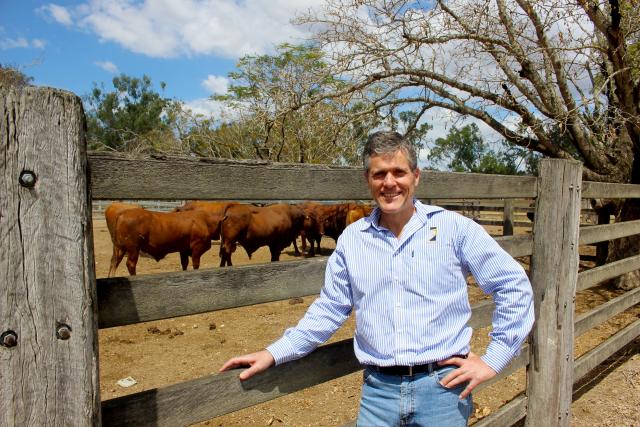The consortium bid to revive the Longreach Pastoral College (LPC) is the “perfect example” of how solidarity can precede success, according to AgForce CEO Michael Guerin.
In a big step for the rural industry, 10 prominent pastoral holdings have pledged their financial support for the AAM Investment Group proposal.
Mr Guerin said Australian Country Choice, Cleveland Agriculture, Consolidated Pastoral Co, the Curr family, Georgina Pastoral, Hewitt Cattle Australia, MDH, Mort and Co, NAPCO and AAM had created a rare opportunity to restore the college to its former glory as a teaching facility Queensland could be proud of.
“But that’s not all,” he said.
“This one in a million chance wouldn’t have been possible without the backing of our rural and regional communities.
“An astonishing 3300 letters of support for this proposal have been received by the State Government, who will now consider the bid and, fingers crossed, turn the dream into a reality.”
Also, if the sale is successful, AgForce will propose the college adopt its joint training venture with Response to deliver a modern approach to agricultural education.
“When Longreach Pastoral College closed in 2019, it left a gaping hole in the state’s capacity to develop the skills of the workforce required by Australia’s thriving farm sector,” Mr Guerin said.
“It took away part of the lifeblood of the community.
“The time has come to restore what was lost.
“The time has come to collectively rejuvenate Longreach Pastoral College to enable it to become a trustworthy, viable and intergenerational learning centre for centuries to come.
“Together we stand, divided we fall.
“I know which one I’m choosing.”
Muttaburra grazier Boyd Webb agreed, saying it was “reassuring” to see such a large commitment from some of Australia’s biggest pastoral families and companies.
He said it added weight to the argument that the rural industry needed a training facility.
“When the Longreach Pastoral College was run independently – under its own board until 2002 – it was very successful,” Mr Boyd said.
“It was held in high regard, it was at capacity and running within budget.
“The wheels started to fall off when the original model was changed.
“The State Government became involved and it switched to a generic national training model and cut subsidies for interstate students, to name a few changes.
“Compliance became more important than training.
“The college was changed to fit the funding instead of the funding fitting the college. It became wobbly when it lost its autonomy and local guidance.”
The Webb family has employed LPC students and supported the college since the early 1970s, alongside many other local operators.
It was a “fantastic” way for students to learn and build relationships for future employment.
According to Mr Webb, practical agricultural training is needed now “more than ever“ due to technological advances and onerous occupational, health and safety regulations.
He said since the colleges closed in Longreach and Emerald in 2019, pastoralists had shouldered the responsibility of training employees in the bush.
“If the government withdrew its support for medical students, accountants and engineers, for example, it would create a public outcry.
“As it stands, the onus is now on primary producers with no support to train people. Yes, there are short courses and TAFE-type training but that’s not equipping people to work in agriculture.
“You wouldn’t show a medical student around a hospital and give them a piece of paper saying they can practice medicine.
“Yet it seems to be acceptable to do that for agriculture. There is too much emphasis on pieces of paper and not enough on ability.
“In the past, students would leave Longreach Pastoral College ready to go to work. It was good, basic training, underlined by occupational health and safety best practice.
“Whether it was fencing, marking lambs, mustering cattle, changing a motorbike tyre or butchering meat.
“They were taught how to do these tasks, the science and the safety behind it all. Even basic life skills were gained.
“The general feel of the college was always so positive.“
Mr Webb said because the pathway to the bush was no longer straight forward, a college would help connect school leavers to a career in agriculture.
“Once upon a time everyone had an aunt or uncle on the land, or had a connection that provided a link to the bush,“ he said.
“Nowadays, some people struggle to even know what foods animals produce.
“If the college facilities can somehow get back to being used for training of agriculture – and other relevant subjects – that would be the best possible outcome.”









